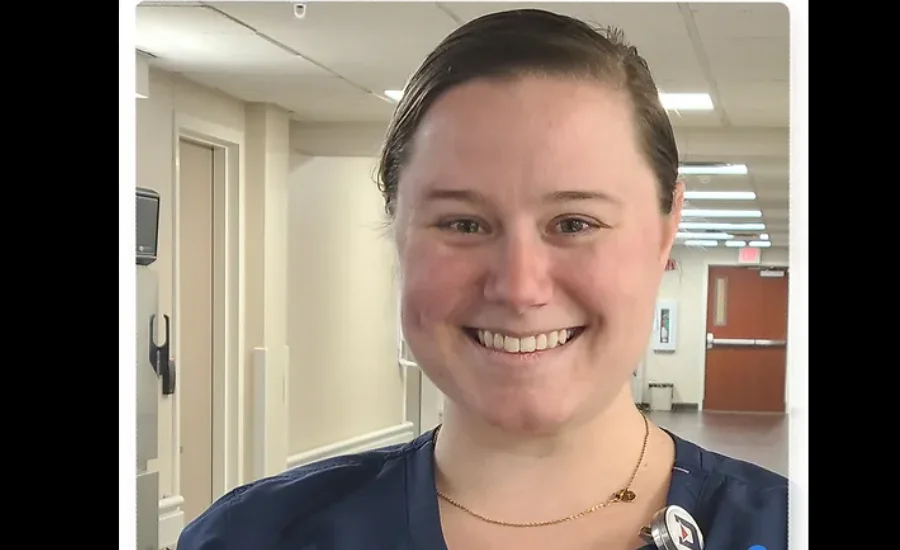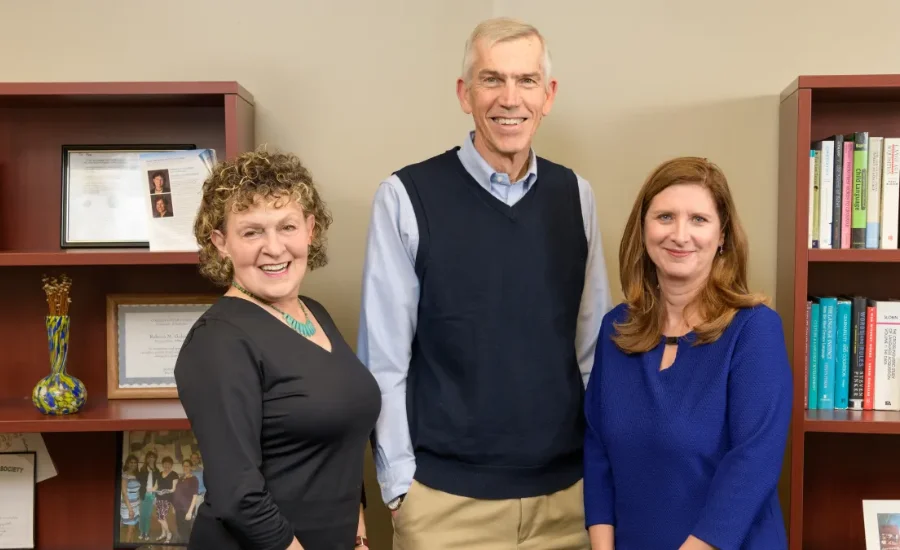Jaimie hiebert phd, stands out as a prime example of exceptional scholarship and tireless commitment to research.
Her academic journey is a testament to more than personal success—it illustrates the profound impact that dedicated scholars can have in transforming their disciplines, while motivating and guiding future academics.
Dr. Hiebert’s work is a remarkable blend of precise research methodologies, forward-thinking concepts, and meaningful applications, positioning her as a key contributor to both academic inquiry and industry practices.
Through years of thorough investigation and unyielding commitment, she has not only deepened theoretical knowledge but has also been instrumental in translating academic insights into practical, real-world solutions.
Who is Dr. Jaimie Hiebert?
Dr. Jaimie Hiebert stands as a distinguished figure in both academia and professional fields, having made remarkable contributions to education, sustainability, and renewable energy. With years of dedicated research, leadership, and mentorship, Dr. Hiebert has left an indelible mark on her disciplines. Her journey reflects not only personal success but also a broad impact on the global community, ranging from environmental innovations to educational advancements.
Her work highlights the significance of interdisciplinary research, where her background in educational psychology and environmental sustainability converges to address some of the most pressing challenges of today’s world.
Early Life
Dr. Jaimie Hiebert’s journey toward becoming a leading academic and researcher started early in her life. From a young age, she exhibited a natural curiosity about the world, which fueled her desire to learn and explore complex topics. Raised in an environment that emphasized the importance of education, she developed a keen interest in understanding human behavior, psychology, and the ways in which individuals learn and grow.
Her undergraduate studies laid the foundation for her future career, where she excelled in understanding the core principles of cognitive psychology and educational theory. This early academic success helped Dr. Hiebert establish a robust theoretical understanding that would later inform her research and professional activities. Throughout her academic path, she benefited from the mentorship of several esteemed professors, who guided her in shaping her academic trajectory and honing her skills in research and writing.
Academic Journey of Dr. Jaimie Hiebert

Dr. Hiebert’s academic path is one shaped by persistence, intellectual curiosity, and an unwavering commitment to excellence. Her journey in the academic world began with a strong foundation in core principles during her undergraduate studies. From there, she pursued advanced degrees, each phase bringing her closer to becoming a leading figure in her field.
Her doctoral work set the stage for what would become groundbreaking contributions to education, particularly in the areas of teacher professional development and instructional design. Dr. Hiebert’s research on collaborative learning environments and their effect on teacher growth has influenced various educational systems, providing a foundation for further studies and implementations.
Shaping Educational Research
One of the key components of Dr. Hiebert’s legacy lies in her ability to develop innovative research methodologies. Her doctoral research, which focused on the intersection of teacher professional development and collaborative learning, has proven to be highly influential. By challenging traditional views and proposing new frameworks for learning and teacher engagement, she was able to shift paradigms in educational psychology.
Her work emphasized the importance of peer coaching, reflective practices, and collaborative environments—ideas that are now commonly integrated into teacher development programs worldwide. As an educator, Dr. Hiebert’s research has played a pivotal role in shaping both theoretical and practical approaches to educational psychology.
Doctoral Research: A Turning Point
Dr. Hiebert’s doctoral research was a transformative experience that significantly influenced her future career and the field of educational psychology. During her PhD, she focused on exploring the dynamics of collaborative learning environments and their role in teacher professional development. Her work challenged conventional ideas by offering a new perspective on how teachers develop professionally through peer interactions and shared experiences.
Her doctoral thesis introduced concepts such as peer coaching and reflective practice, which have since become integral components in the realm of teacher development. By examining how collaborative learning impacts educators’ ability to refine their skills, Dr. Hiebert contributed valuable insights that have shaped research in both educational theory and practice. These findings have been widely cited in subsequent studies and continue to inspire new generations of scholars and educators.
Interdisciplinary Approach and Broader Contributions
One of the distinguishing characteristics of Dr. Hiebert’s work is her interdisciplinary approach. By bridging the gaps between educational psychology, instructional design, and cognitive science, she developed a holistic view of teaching and learning. This allowed her to offer solutions that not only addressed the theoretical aspects of education but also had practical applications that could be implemented in real-world classroom settings.
Her research methodology incorporates a blend of qualitative and quantitative techniques, enabling her to examine educational phenomena from multiple perspectives. This approach has proven highly effective in generating nuanced insights that enhance both academic understanding and practical application in education.
Contributions to Sustainability and Renewable Energy
Alongside her contributions to education, Dr. Hiebert has been a key player in environmental sustainability. Her expertise extends to renewable energy technologies, including solar power optimization and smart grid infrastructure. Collaborating with engineers, policymakers, and other professionals, Dr. Hiebert has contributed to innovative energy solutions designed to mitigate climate change and promote sustainability.
Her leadership in the renewable energy sector has spanned across both research and professional practice. Through collaborative projects and cutting-edge research, Dr. Hiebert has advanced technologies aimed at energy efficiency and renewable solutions, including the development of advanced energy storage systems and smart grid innovations. Her work has far-reaching implications, influencing both policy development and practical industry applications.
Professional Leadership and Mentorship
Dr. Hiebert’s influence extends beyond her personal research contributions. She is a well-respected mentor and leader in her field. Her commitment to nurturing the next generation of scholars and professionals is evident in the numerous mentorship programs she has developed and the teams she has led.
As a mentor, Dr. Hiebert has helped countless students and early-career researchers achieve success, providing guidance and support in their academic and professional journeys. Her approach to mentorship is grounded in the belief that sharing knowledge and fostering growth are integral to advancing her field. She has also played a significant role in professional organizations, contributing to committees, conferences, and advisory boards that help shape the direction of future research.
Interdisciplinary Focus: Connecting the Dots
One of the hallmarks of Dr. Hiebert’s career has been her ability to bridge various fields of study. By integrating insights from educational psychology, cognitive science, and environmental sustainability, she has been able to create a more holistic approach to problem-solving. This interdisciplinary focus has allowed her to tackle complex challenges from multiple angles, leading to more comprehensive and innovative solutions.
Her ability to connect seemingly disparate fields has made her a thought leader, not only in education but also in sustainability. This interdisciplinary approach ensures that her work resonates across different sectors, making a significant impact on both academia and industry.
Transforming Teaching and Learning
Dr. Hiebert’s impact on education is profound, particularly in the areas of curriculum development, teacher training, and assessment practices. Her contributions have led to the development of new teaching methodologies that prioritize collaboration, reflection, and critical thinking. Her research on effective teaching practices has had direct applications in classrooms, where educators use her frameworks to enhance student learning outcomes.
Dr. Hiebert’s work also emphasizes the importance of adapting to the evolving landscape of education. As educational technology continues to grow, her research has become increasingly relevant in integrating digital tools and platforms into traditional teaching methods. She has helped shape a generation of educators who are well-equipped to navigate the challenges of modern classrooms.
Bridging Theory and Practice
Throughout her career, Dr. Hiebert has demonstrated a rare ability to connect academic research with real-world applications. Her approach to research has always been rooted in practical impact, ensuring that her findings are not confined to theory but are applied in tangible ways. This commitment to bridging the gap between theory and practice is one of the reasons her work is so highly regarded.
For instance, her research on the role of teacher collaboration in professional development has been applied in various school districts to improve teacher effectiveness. Similarly, her work on renewable energy systems has influenced the design and deployment of sustainable energy technologies worldwide.
Global Impact and Recognition
Dr. Hiebert’s contributions have garnered international recognition. Through her involvement in major global research initiatives and collaborations, her work has reached far beyond local or regional significance. Whether in education or sustainability, her influence is felt across borders, as she works with international teams to address global challenges.
Her published works, which include influential research articles and books, have been widely cited in academic journals, helping to shape the direction of future research in both fields. In addition to her academic contributions, Dr. Hiebert has received numerous awards recognizing her leadership and innovation.
Professional Leadership and Mentorship
As a mentor and leader, Dr. Hiebert has played a pivotal role in guiding the careers of emerging researchers and educators. Her commitment to mentorship is evident in her active involvement in training programs and her leadership of academic committees that support professional development. Through her guidance, many of her students and colleagues have gone on to make significant contributions to the field of educational research.
Dr. Hiebert’s leadership also extends to the broader academic community. She has served on the editorial boards of prestigious journals and has been an active member of key academic organizations, such as the American Educational Research Association (AERA). Her leadership in these forums has been instrumental in shaping the direction of research in educational psychology and instructional design.
Challenges and Resilience

No journey to success is without challenges, and Dr. Hiebert’s career is no exception. Throughout her academic and professional life, she has faced numerous obstacles, from navigating the complexities of balancing research with personal life to overcoming setbacks in the development of new technologies. However, it is her resilience in the face of adversity that has truly defined her.
Each challenge has only strengthened her resolve, driving her to seek innovative solutions and foster meaningful collaborations. Dr. Hiebert’s ability to turn obstacles into learning opportunities is a testament to her unwavering determination and commitment to her work.
Innovations in Teacher Training and Curriculum Development
One of Dr. Hiebert’s most significant contributions has been her work in revolutionizing teacher training and curriculum development. By advocating for the inclusion of collaborative learning strategies, reflective practice, and technology in teacher development programs, she has helped reshape the way educators are prepared for the challenges of modern classrooms.
Her contributions to curriculum design have also been groundbreaking. She has developed innovative teaching models that integrate cognitive science and educational psychology, providing educators with tools to create more effective learning environments. Dr. Hiebert’s approach emphasizes the importance of student-centered learning and the need for teachers to engage in continuous professional growth throughout their careers.
Impact on Educational Technology and Digital Learning
As an early advocate for the integration of technology in education, Dr. Hiebert has played a crucial role in shaping the field of educational technology. Her research on the use of digital tools for teaching and learning has informed the development of online learning platforms, virtual classrooms, and other digital resources that are now widely used in education systems around the world.
Her work has highlighted the potential of technology to enhance collaboration among educators, improve student engagement, and provide personalized learning experiences. By examining how technology can support teacher professional development, Dr. Hiebert has helped educators harness the power of digital tools to improve both teaching practices and student outcomes.
Vision for the Future
Looking ahead, Dr. Hiebert remains committed to driving innovation in both education and sustainability. She envisions a future where interdisciplinary collaboration becomes even more integral to solving global challenges. In education, she aims to continue shaping curriculum development, helping educators create learning environments that foster creativity, critical thinking, and lifelong learning.
In the realm of sustainability, Dr. Hiebert’s focus is on advancing clean energy solutions and creating systems that address climate change. By continuing to push the boundaries of research and practice, she seeks to make a lasting impact on future generations.
Also Read: Gertrude Parthenia Mcbrown Haralm
Final Words
Jaimie hiebert phd, is a trailblazing scholar whose interdisciplinary contributions have left a profound impact on education, sustainability, and renewable energy. Her research revolutionized teacher professional development, emphasizing collaborative learning, peer coaching, and reflective practices. These innovative frameworks have transformed educational psychology, bridging theory and practical application.
Beyond education, Dr. Hiebert’s work in renewable energy has advanced clean energy solutions, including solar power optimization and smart grid infrastructure. Her ability to integrate insights from diverse fields underscores her exceptional ability to address complex global challenges.
A mentor and leader, Dr. Hiebert is dedicated to nurturing emerging scholars, shaping the next generation of educators and researchers. Her influence extends globally, with her research and practical solutions making a tangible difference in classrooms and industries alike.
Driven by resilience and innovation, Jaimie hiebert phd, continues to inspire, ensuring her legacy as a transformative force in academia and beyond.
For exclusive academic insights and impactful solutions, explore the legacy of Dr. Jaimie Hiebert at Discover Outlooks.
